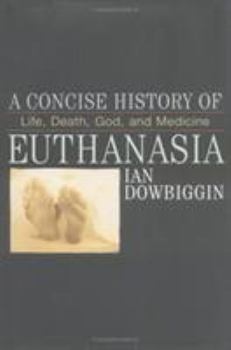A Concise History of Euthanasia: Life, Death, God and Medicine
Select Format
Select Condition 
Book Overview
This deeply informed history traces the controversial record of mercy-killing, a source of heated debate among doctors and laypeople alike. Dowbiggin examines evolving opinions about what constitutes a good death, taking into account the societal and religious values placed on sin, suffering, resignation, judgment, penance, and redemption. He also examines the bitter struggle between those who stress a right to compassionate and effective end-of-life care, and those who define human life in terms of either biological criteria, utilitarian standards, a faith in science, humane medical treatment, the principle of personal autonomy, or individual human rights. Considering both the influence of technological and behavioral changes in the practice of medicine and the public's surprising lack of awareness of death's many clinical and biological dimensions, this book raises profound personal and collective questions on the future of euthanasia.
Format:Hardcover
Language:English
ISBN:0742531104
ISBN13:9780742531109
Release Date:October 2005
Publisher:Rowman & Littlefield Publishers
Length:163 Pages
Weight:0.92 lbs.
Dimensions:0.7" x 6.3" x 9.1"
Customer Reviews
0 rating





